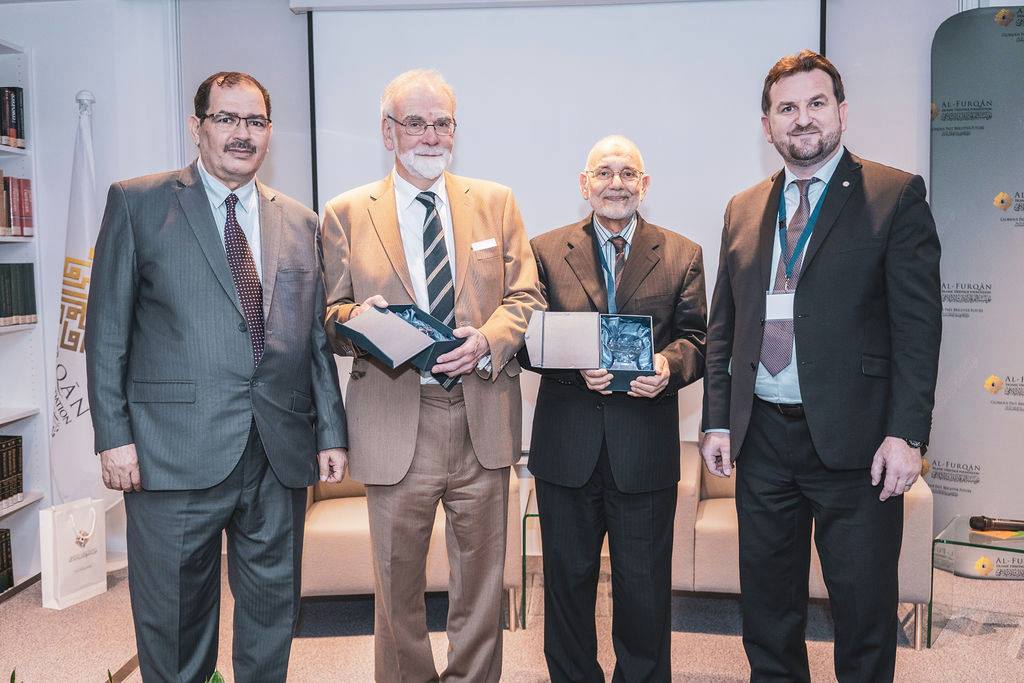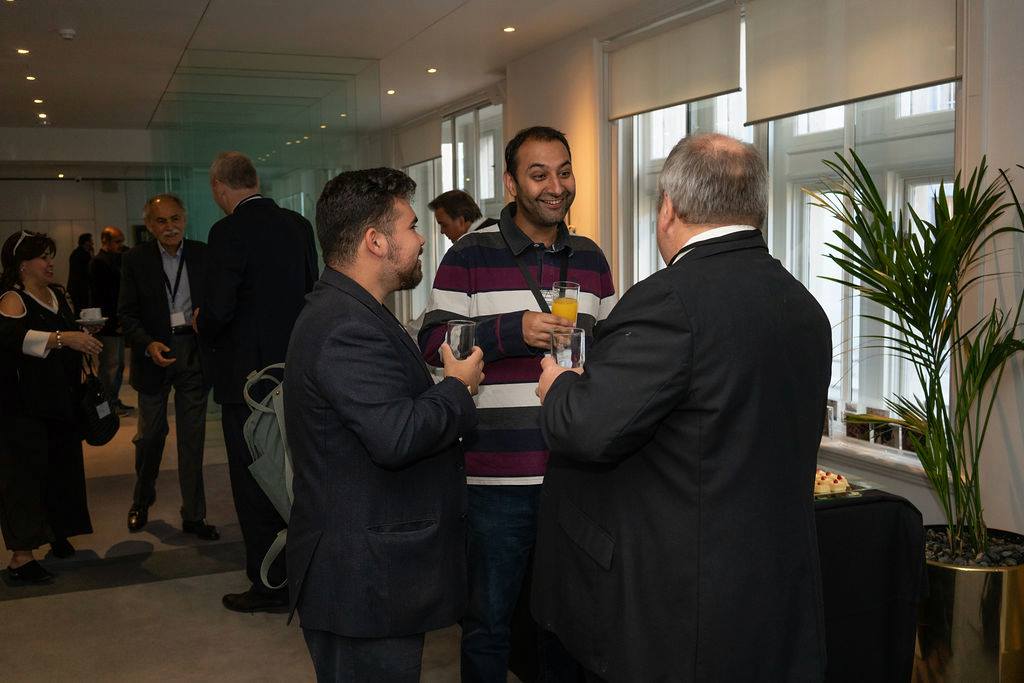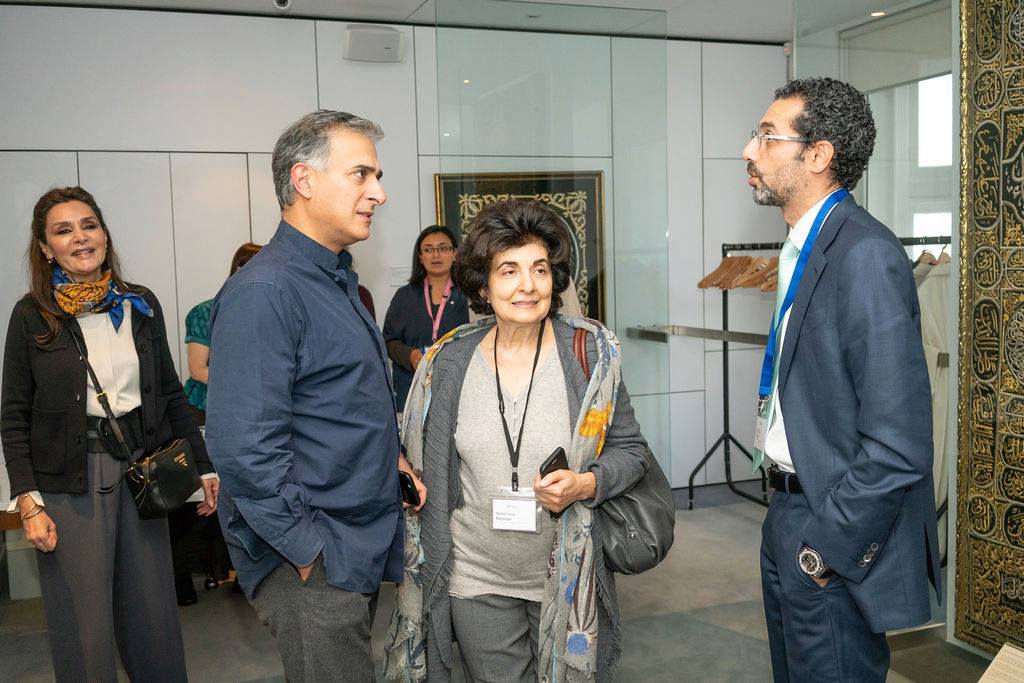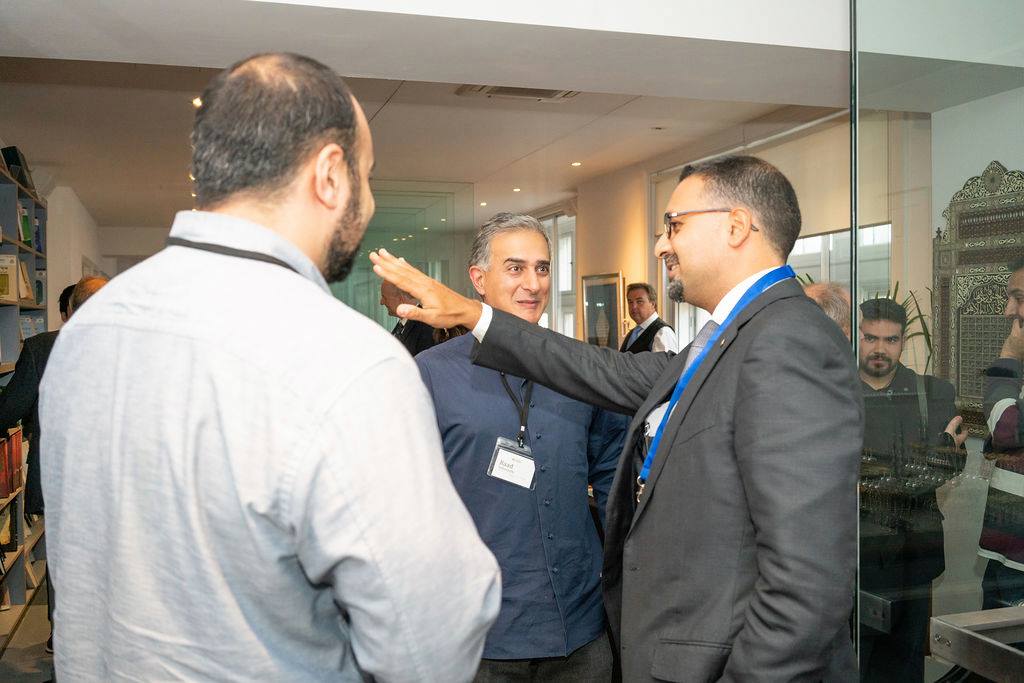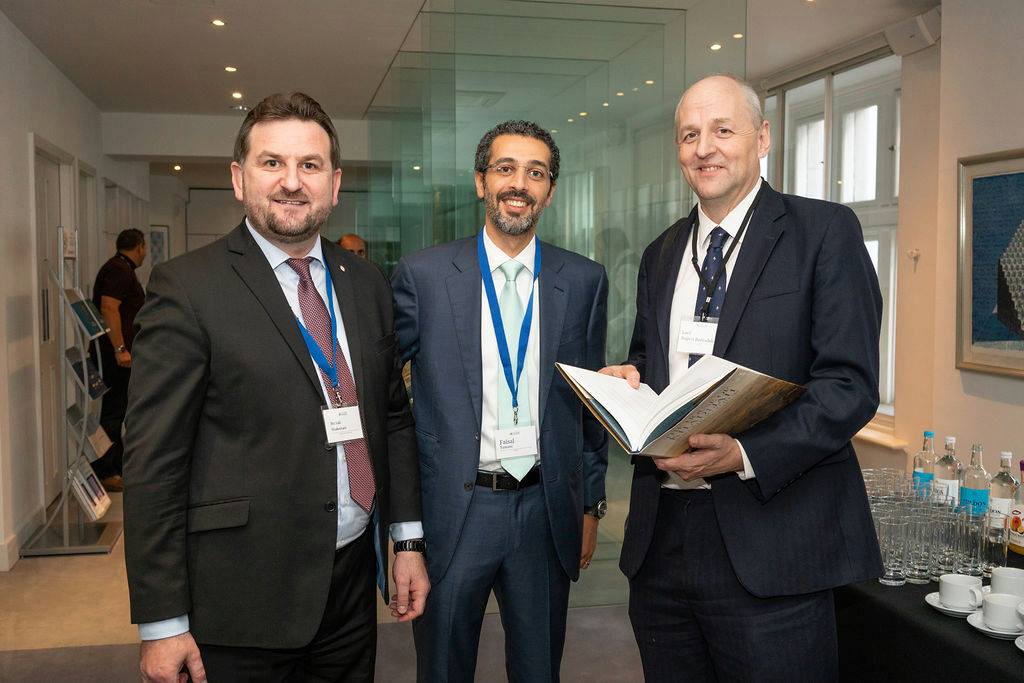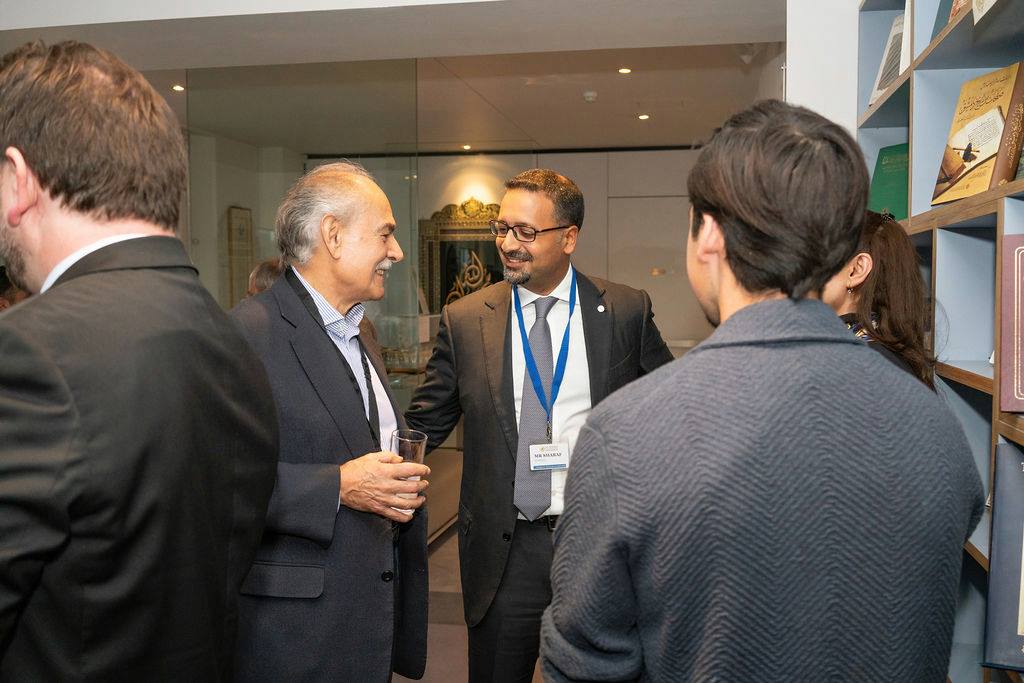As part of the Al-Furqān Islamic Heritage Foundation’s lecture series, the Centre for the Study of the Philosophy of Islamic Law, organised a panel discussion on Wednesday, 26 September 2018. This was titled “Islam and the Environment: An Objective-Based Approach”, and was hosted at the lecture theatre in Al-Furqān’s London headquarters. The lecturers were Mr Ahmed Paul Keeler, Visiting Fellow at the Centre of Islamic Studies, University of Cambridge, and Dr Jamal Badawi, Professor Emeritus at St. Mary's University in Halifax, Canada.
Mr Sharaf Yamani, Member of the Al-Furqān Islamic Heritage Foundation Board of Directors, opened the evening by welcoming and thanking the guests and introducing the panel discussion and the lecturers. He drew attention to the long-standing interest at the Al-Furqān Foundation in studying and promoting the ideals of Islamic law (Maqāṣid al-Sharīʿah), noting that it is a prerequisite to a proper understanding of the Qur’an, and one that leads to a common good and the protection of universal rights. He then underscored that the lecturers would discuss the existential crisis faced by humanity through a beleaguered environment, examining it through the lens of maqāṣid.
The destruction of the environment and natural world at the centre of our gaze is occurring because humanity has “deviated from the natural state of balance, towards the endless pursuit of excess and superficial attractions”, which have consequently resulted in economic injustice, “where the material wealth of the world is placed in the hands of the few.” This, Mr Yamani proposed, is the realisation of the Qur’anic dictum that, “Corruption has appeared throughout the land and sea by [reason of] what the hands of people have earned so He may let them taste part of [the consequence of] what they have done that perhaps they will return [to righteousness].” (Surat al-Rūm, 31:41). With this state of peril in mind, he invited both the lecturers to shed further light on the topic by investigating the causes and illustrating the escape.
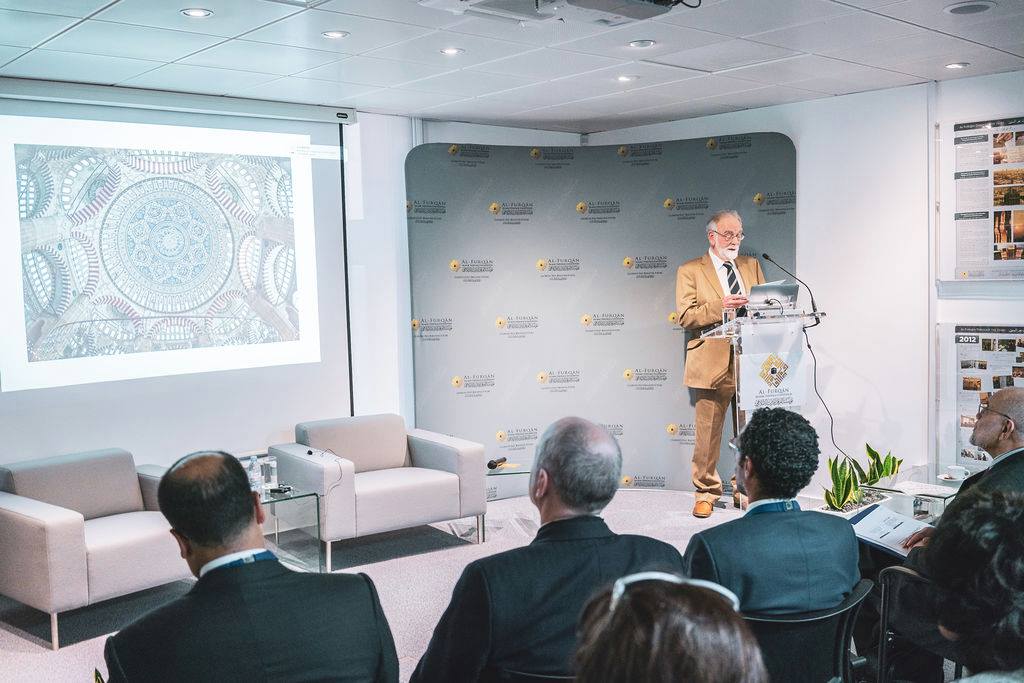
Mr Ahmad Keeler delivered the introductory illustrated lecture. He drew heavily on imagery and interspersed statements from scientists and experts in the field, to underscore the present state of the environmental crisis. He informed the audience that at Cambridge, where he has been resident for over two decades, Sir Martin Rees has founded the “Centre for the Study of Existential Risk”, one such centre dedicated to the study and mitigation of risks that could lead to human extinction or civilizational collapse, focusing primarily on biological and environmental risks, and also risks posed by artificial intelligence and extreme technological risk.
Mr Keeler argued that it was the “modern scientific mind” that is responsible for creating this state of affairs and that the consequence of these attitudes is not, as many may think, just another fact of life - a merely unfortunate by-product of our otherwise good intentions and soundly established acts of progress - but that actually, the materially-obsessed, empiricist scientific method, born in the 17th century, is unable to understand existence “holistically”. Perpetual unbound material growth, as sought by the paragons of this mentality, cannot be sustained, he maintained. The exit, he proposed, was to revert to the Qur’anic injunction of preserving and upholding the “balance” or mizān (Surat al-Raḥmān, 55:7-9). Such a state, where tension is resolved and peace prevails, is one that Islam is able to realise once again. That is because it has demonstrated this ability before, since “knowledge in Islam crowned the beauty and unity of the architecture within the four modes of knowing: revelation, spiritual cognition, reason and sensory experience.” All of these, Mr Keeler asserted, had been full integral to the witnessing of The Truth (al-ḥaqq). Thus, a perfect synthesis was formed and the faculty of reason was integrated and in a state of peace (salām). When Thomas Aquinas attempted one such feat several centuries ago, he was unable to do so. Consequently, there was a later rebellion against the Church by scientists who sought to displace God in favour of “rationality”. However, rationality is but one aspect of our intelligence. Mr Keeler concluded his lecture with a warning that this focus on the empirical world of senses disregards a spiritual realm and the rational mind divorced from any mooring. The exit lies in a return to the balance as illustrated in the guidance given by Allah.
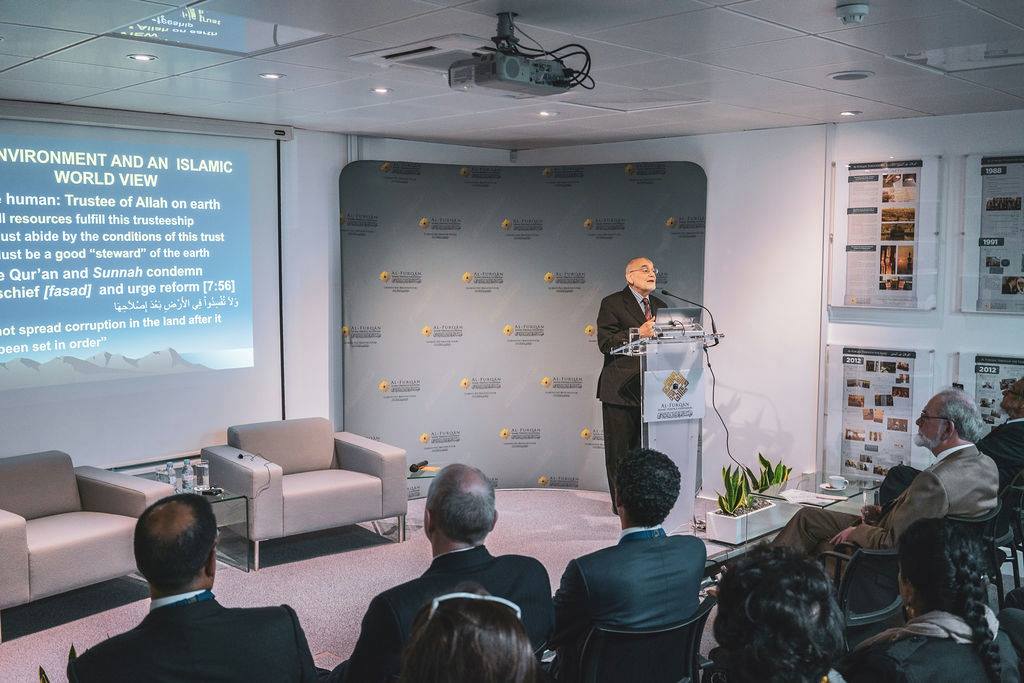
Having diagnosed some causes, it was now Dr Jamal Badawi’s turn to illustrate what the supreme objectives of the Islamic law (Sharīʿah) maintain with respect to the environment. Dr Badawi highlighted the interdependence and interrelation between the earth and the cosmic order, and that both were essential domains to the proper fulfilling of the role of stewardship on earth. With that in light, Dr Badawi declared that the Qur’an and Prophetic Sunnah were moral resources that provide a blueprint for a definition of the environment and provide numerous stipulations as to how humans ought to conduct themselves within it, both individually and collectively.
Drawing on the concept of balance previously mentioned by Mr Keeler, Dr Badawi contended that this balance is not a scale, as one may conjure in their mind, but in fact, the Qur’anic passages mentioning the balance do so whilst speaking of the heavens and the earth. Corruption, on the other hand - which is the cause of the imbalance and disorder - is a direct consequence of human doing. Therefore, human beings are ultimately responsible for the crisis at hand and it is paramount that we shoulder the responsibility.
Humans have a responsibility for istiʿmār (building and taking care of the earth, as found in Surat Hud, 11:61), and not to corrupt the earth after it has been put aright (Surat al-Aʿraf, 7:56). In light of this, the Sharīʿah aspires to five supreme aims or objectives: the protection and preservation of faith, life, reason, progeny and property. Harming the environment is incompatible with these supreme objectives, Dr Badawi asserted.
He then took the audience through many scriptural injunctions pertaining to this matter, demonstrating how the Qur’an refers to the earth as blessed and protected; that Allah created it green and lush and full of vegetation. The audience was treated to snapshots of Prophetic statements on the importance of caring for the earth, with all that it contains: humans, animals and all forms of creatures.
Dr Badawi concluded with the following six points: faith and stewardship are intertwined; eco-balance and bio-diversity are important; it is us human beings who bear responsibility for this crisis; there ought to be wider and multi-level involvement in resolving this crisis; reform is not only ecological, but moral, social, economic and political, on all fronts, and finally, there ought to be further interfaith and civic cooperation on this. He concluded that humanity, altogether, is facing this existential threat and that we must urgently come altogether to resolve the problem. Dr Badawi reminded the audience that much further work remains to be done.
With the lectures concluded, the speakers were invited to the stage to receive comments and questions pertaining to the topic.
